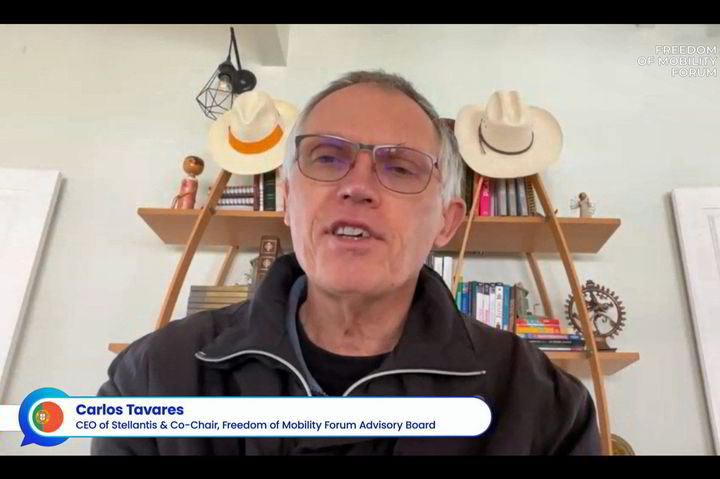Cost of hydrogen mobility is ‘sky high’, says Stellantis CEO, two months after introducing eight new H2 van models

The cost of hydrogen mobility is “sky-high” and “far from being affordable”, the CEO of the world’s third-largest automaker Stellantis told an online event yesterday — a little over two months since his company introduced eight new fuel-cell vans to the market.
“Of course, hydrogen is bringing much more convenience because it’s much faster to charge [than battery electric vehicles]… but once you benefit from this convenience, and once you make the assumption that the energy you are using to produce hydrogen is clean, you still have the enormous challenge of cost,” Carlos Tavares told the Freedom of Mobility Forum, for which he is co-chairman of the advisory board.
“Right now, we see that the technology for hydrogen-based mobility is twice as expensive as the electric vehicles, which then means that we are very far from conventional [fossil-fuel] technology, so I’m afraid that for the time being affordability is going to be a major showstopper for hydrogen.”
Twice as expensive may be something of an underestimate, depending on the market, with Hydrogen Insight writing in September last year that it was almost 14 times more expensive to drive a Toyota fuel-cell car than a comparable Tesla EV.
Tavares added that hydrogen vehicles could be suitable for “big corporations”, but not “normal citizens”.
“Possibly for the fleets that come to the garage every day we can justify the investment of one hydrogen charging unit for big corporations, but still it’s going to be far from being affordable, but it is much more convenient as you can charge a tank of hydrogen in approximately three to four. So its convenience is better; cost is sky-high.
Article continues below the advert
“And I think for the near future, it’s going to be a solution for fleets of big corporations, but certainly not for the normal citizens.”
Stellantis — which owns brands such as Chrysler, Citroën, Fiat, Peugeot and Vauxhall — said at the end of January it was introducing hydrogen versions of eight of its current battery-electric van models in a bid to “cement [its] standing as the undisputed leader in zero-emission propulsion in commercial vehicles in Europe”.
It cited the fast refuelling time as the main advantage for fuel-cell vans over battery models — for “intensive customer use”
The Amsterdam-based automaker said in January that it would introduce fuel-cell version of the Citroën ë-Jumpy and ë-Jumper, Fiat Professional E-Scudo and E-Ducato, Opel/Vauxhall Vivaro and Movano, and Peugeot E-Expert and E-Boxer — with production “starting now” at its plants in Hordain, France, and Gliwice, Poland.
But it has not specified which models it will immediately build or when they will be commercially available.
Stellantis made another significant investment in hydrogen vehicles in May last year, when it acquired a 33% stake in French fuel-cell supplier Symbio “to bolster our leadership position in hydrogen-powered vehicles”, saying at the time that it expected to produce up to 10,000 H2 vans by the end of 2024 — something that now seems highly unlikely.






